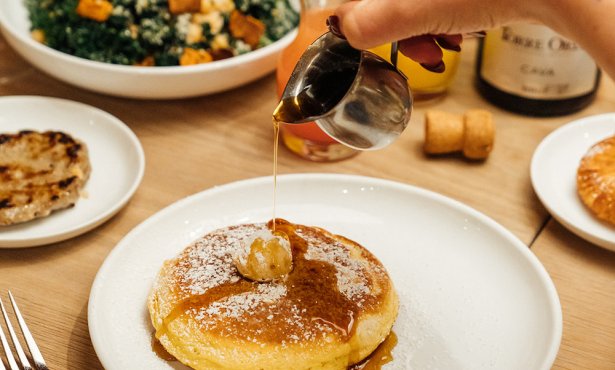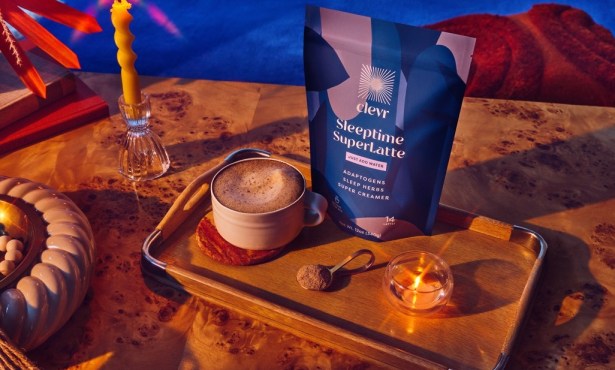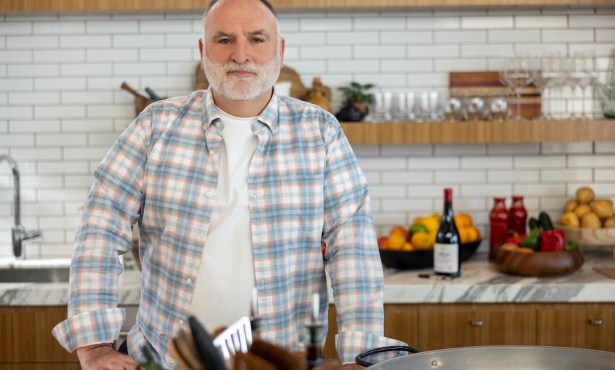Bany Vargas Brings Authentic Oaxaca to Santa Barbara and Beyond
Owner of La Calenda Sells Traditional Art, Clothing, Food, and More Through Online Store and Pop-Ups

Bany Vargas es una Oaxaqueña orgullosa — a proud Oaxacan.
Born in a town called Telixtlahuaca, she moved to Santa Barbara with her parents and brother when she was 8. Though she spent most of her life here, Oaxaca has “always felt more like home” to her. As an adult, she continues to be inspired by her cultural heritage, as well as her work.
Vargas owns and operates La Calenda, a shop that sells Oaxacan goods and educates about its cultures and traditions. It originally opened in 2013 as a brick-and-mortar on De la Vina Street, but now operates solely online and at pop-ups.
The idea for La Calenda came naturally. Vargas’s mother, Esperanza Lopez, originally wanted the family venture to be a Oaxacan food restaurant, but Vargas had another idea.
“I always dress in traditional Oaxacan clothes, [such as] huaraches and traditional blouses, and people have always asked me about my shoes and my bags or whatever I’m wearing,” she said. “So I told my parents, ‘We should start with a store.’”
Vargas’s intuition was right. Locals loved their offerings from the start: colorful hand-woven huipiles (blouses), ceramic and barro mugs and pitchers, and handmade jewelry and bags, as well as different tea blends and traditional salsa and hot chocolate.
As La Calenda grew, they expanded their sourcing to include goods from other parts of Mexico, too, including Guanajuato, Mexico City, and Michoacán.
Forming ethical business partnerships and friendships with artesanos throughout Mexico has been “the best part” of Vargas’s work, she said. She directly sources goods from them at their asking price and includes them in La Calenda’s workshop and tour programming.
“Without the artisans, we wouldn’t exist,” she said. “I do not haggle the people I work with for a lower price. I respect their work.”
Clientele has stuck with La Calenda even after the physical store closed in 2019 and transitioned to online only with occasional pop-ups. You can still buy beautiful, handmade artesanías, clothing, and food items from Mexico, or buy a “mini ofrenda kit” to make your own Día de los Muertos altar. You also can take a traditional crafting workshop or go on an in-person tour in Oaxaca, organized and led by Vargas. It’s all part of her mission to bring Oaxaca to Santa Barbara and beyond, in a thoughtful and authentic way.
In recent years, Vargas has observed an increased interest in Oaxacan culture but has also witnessed the commercialization of her culture that often distorts or ignores the true histories of Oaxacan traditions, such as those around mezcal or Oaxacan tamales. As an immigrant who grew up connected to and appreciative of her roots, Vargas believes her work is a necessary response to the trendy, inauthentic, and appropriative depictions of her homeland in the mainstream.
“My culture is not a trend,” she said. “It actually means something to me.”
She wants all those who meet Oaxaca — whether through people, food, artesanías, or travel — to more deeply know and respect its histories and traditions, and especially its people.
“I see so many people now loving Oaxacan culture,” Vargas said. “I feel like the least you can do is try to understand our culture.”
Vargas’s world has remained very binational. She moved back to Oaxaca in 2020 and returns to Santa Barbara a few times a year to sell at markets, organize Oaxaca-related events, and connect with her family and customers.
On November 1, she’s hosting a Día de los Muertos celebration with her friend, a mezcalero, at Palenque 5 Estrellas in Matatlán, Oaxaca. On December 3-5, she’ll be selling in Santa Barbara, at the 36th Annual Folk & Tribal Arts Marketplace at the Museum of Natural History.
Through La Calenda, Vargas, who is also a chef, makes and sells authentic Oaxacan dishes, using ingredients sourced from the region. Around the holidays, she makes tamales using traditional heirloom corn masa from Yanhuitlán, Oaxaca.
She lovingly recalls her annual summer trips to visit her grandparents and extended family in Oaxaca. She’d help her grandmother Rosaura Diaz de la Rosa — called “Chaguita” by family — make traditional Oaxacan hot chocolate, a beloved family recipe that she now wants to share with others.
In fact, Chaguita — who will turn 100 next year — was a key inspiration for Vargas and her family to start La Calenda. Vargas recognizes the greatness of their cultural traditions and wants others, including her own family, to see it, too.
“I wanted [my grandma] to see that something that she might see as simple, like making hot chocolate,” she said, “that it could actually be something really, really important.”
For a full listing of upcoming events, sales, and more, see lacalendasb.com.
Support the Santa Barbara Independent through a long-term or a single contribution.



